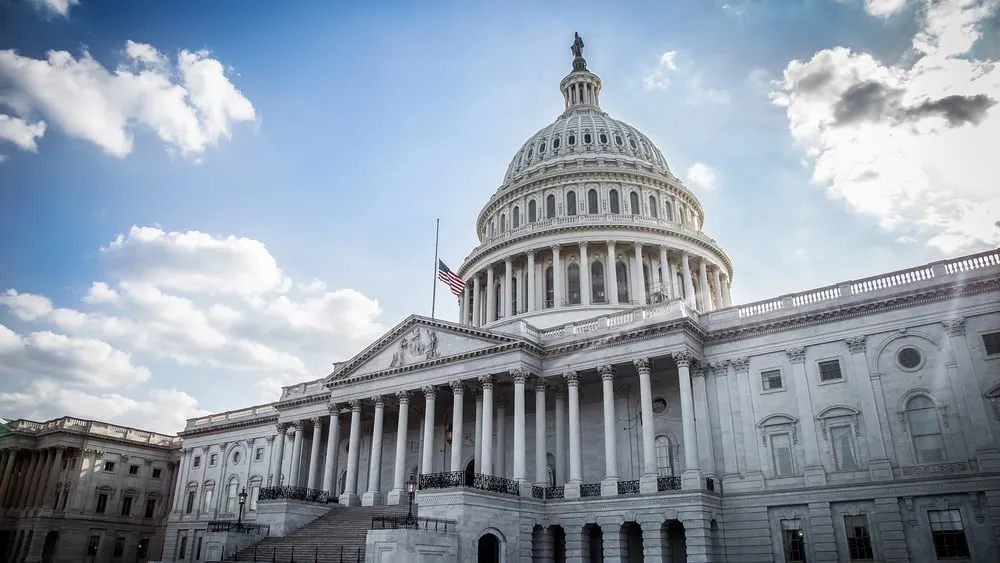This week, the U.S. Senate Banking Committee plans to vote on a bipartisan bill aimed at regulating stablecoins and enhancing consumer protection.
Introduced by Senators Bill Hagerty (R-TN) and Tim Scott (R-SC), the GENIUS Act seeks to clarify the regulatory framework for stablecoins in the U.S., with provisions addressing reserve requirements, audits, transparency, and licensing for issuers.
If passed Thursday, the legislation would provide a clear path for stablecoin issuers and further advance President Donald Trump’s crypto policies as the U.S. attempts to cement regulatory clarity for the industry.
“From enhancing transaction efficiency to driving demand for U.S. Treasuries, the potential benefits of strong stablecoin innovation are immense,” Sen. Hagerty said in a statement.
“My legislation establishes a safe and pro-growth regulatory framework that will unleash innovation and advance the President’s mission to make America the world capital of crypto,” he said.
The act allows stablecoin issuers to choose federal or state charters based on market cap. It also introduces "reciprocity" agreements, requiring foreign issuers to meet U.S. standards on reserves, anti-money laundering provisions, sanctions compliance, and liquidity.
“The reserve requirements, anti-money laundering requirements, all fall neatly for RLSUD and USDC.,” Jeremy Hogan, partner at law firm Hogan & Hogan, wrote on X on Monday, pointing to issuers Ripple and Circle while echoing sentiment shared by others across the crypto community.
He added that the bill could require issuers to comply with future orders that may instruct them to "seize, freeze, burn, or prevent the transfer of payment stablecoins" or else block digital assets and accounts with "reasonable particularity."
That would give U.S. authorities the power to control digital assets within their jurisdiction and places additional operational burdens on existing issuers.
Another of the bill's most significant provisions is its focus on foreign-issued stablecoins.
Those provisions could align well with U.S.-based stablecoins, such as Circle’s USDC and Ripple’s RLUSD, which are domiciled in the U.S. and claim to already comply with many of the bill's requirements.
This could provide an edge over foreign-based issuers, such as Tether (USDT), the world’s largest stablecoin issuer by market cap, which some argue may struggle to adjust.
Tether, currently based in Bitcoin-friendly El Salvador, has no formal U.S. presence and has traditionally backed its USDT stablecoin with a mix of assets, including Bitcoin, U.S. Treasury bills, and corporate paper.
Much of Tether’s reserves, particularly its Bitcoin holdings, may not meet the new compliance standards, according to a recent report from JP Morgan.
That could lead Tether to liquidate portions of its Bitcoin reserves to comply with U.S. regulations, a move that could affect its ability to maintain its peg to the U.S. dollar, the report reads.
In a bid to allay those concerns, the company has appointed a new Chief Financial Officer to forge ahead with its plans for a full audit, a long point of contention from observers critical of how the company manages its operations.
It is hoped Simon McWilliams, a seasoned finance executive with over 20 years of experience, will add to Tether’s history of quarterly attestations through auditing firm BDO.
Still, it is not yet clear how swiftly issuers will adjust to the suggested changes, as many have depended on a largely unregulated market to foster adoption and develop their businesses into multi-billion dollar enterprises.
Edited by Sebastian Sinclair

